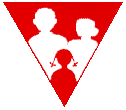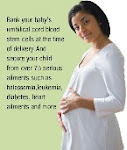Good nutrition is an essential part of daily life. It becomes even more essential during pregnancy because you and your baby’s health greatly depend on good nutrition. Therefore, Prenatal nutrition is the key for maintaining a healthy pregnancy.
Remember that the food you eat when you are pregnant is directly related to the health of growing baby because all the nutrients that need for the baby’s growth comes from the food or the supplements you take.
In recent years there has been evidence that malnutrition in the mother can potentially put an unborn child at risk for chronic disease, such as diabetes, obesity, cancers and heart disease in later life. This is termed as fetal programming.
The nutritional needs of your body change during pregnancy due to the change in the body and the requirements of the Fetus development. Hence, pregnant women need more nutrients than other women.
Calories—You need energy to grow a baby
During pregnancy, the need for calories is increased and an extra 300 kcal are required every day in order to provide adequate nutrition for the growing baby and weight gain during pregnancy. The intake of calories increases if you are underweight or carrying multiple babies.
Pregnancy is not the time to restrict calories and carbohydrates. Skimping on calories and carbohydrates can pose serious risks for a growing baby.
Proteins
Protein is an essential nutrient for strengthening your muscles, breasts, Uterus and baby’s tissues. It also improves blood supply. An average of 65 g of protein per day is required for you during pregnancy. A lower intake of proteins can lead to intrauterine growth restriction. Good sources of proteins are egg, pulses (Bengal gram, green gram, red gram, peas, soyabean, etc), meat products, fish and cereals.
Fats
The average daily requirement of fat in pregnancy is 40 g. A total of 5 teaspoonful of oil is enough to provide this amount in a day.
You should try to restrict the amount of fat and oils in your diet. You need to take about 300 mg/day of DHA during pregnancy. The DHA is an omega-3 fatty acid that is necessary for the brain development as well as the vision of your growing baby.
Vitamins and minerals
Vitamins and minerals help your body use the energy provided by foods for both yourself and your baby. They also help repair and maintain Cells and tissues.
Folic acid (folate) is a vitamin of concern. Folate is required to build protein tissues and for the complete development of red blood Cells. Your Prenatal nutrition must include a minimum of 400 μg/day because less than this amount can lead to birth defects. Sources of folic acid are green leafy vegetables, citrus fruits, bread, beans and nuts.
Vitamin B12 assists with the healthy development of the baby's brain and nervous system. Because vitamin B12 is only present in animal and dairy foods, pregnant women who have a vegan diet will need to have a vitamin B12 supplement.
Iron is an essential nutrient for the blood supply between you and your baby. As your growing baby stores iron for later use, the need for iron increases in your body. The iron content in your Prenatal nutrition must be 38 mg/day. As this amount of iron may not be got from the food you intake, the doctors generally suggest iron supplements.
Calcium is one of the essential nutrients of Prenatal nutrition. It is needed for your baby to maintain strong bones. If your diet lacks calcium rich foods, calcium for your baby’s growth is taken from your bones. The intake of calcium in this period should be 1000 mg/day. Rich sources of calcium are milk, curd, paneer, cheese, green leafy vegetables and fish.
Vitamin D, along with calcium is also essential for keeping your bones healthy and to help your baby have strong bones.
Riboflavin (vitamin B2) helps in the growth of the developing baby, especially in first few weeks.
Nutritional guidelines for a pregnant woman
Always eat balanced meals.
Include all the members of the five food groups.
Eat small and frequent meals.
Never skip any meals.
Try avoiding caffeine (less of tea and coffee).
Avoid packaged and junk foods.
Drink lots of water.
Vitamin A is needed for healthy skin and vision. It also plays a role in your baby’s immunity development. The recommended levels are 600 μg/day (retinol) or 2400 μg/day (beta-carotene). Sources of vitamin A are green leafy vegetables, orange, papaya, carrots, etc. Zinc and iodine are also important for the proper development of your baby’s brain.
Fiber and fluids
It is particularly important to eat more fiber to avoid the common pregnancy problems of Constipation and piles (hemorrhoids). Increase your fiber intake by eating lots of fruit and vegetables (especially green leafy vegetables), whole meal bread and cereals, brown rice and pulses. You should also drink plenty of fluids. Increasing fiber without enough fluids can worsen Constipation.
Need for nutrient supplementation during pregnancy
Nutrient supplementation is an easy way of ensuring an adequate intake of key nutrients. This will also assure that nutrients like DHA, which the body cannot produce, will reach you and your baby.
The first step toward healthy eating is to look at the foods in your daily diet. A balanced diet is a basic part of good health at all times in your life.
CLICK ON CHOSEN TOPIC
Know About Pregnancy
Healthy Pregnancy
Fertility basics
Planning for pregnancy
Want a smart baby?
Pregnancy health
Eating For Two
Your growing baby
Exercise in pregnancy
Benefits of exercising,Recommended exercises
Pregnancy Weight Gain
Sex During Pregnancy
Travel During Pregnancy
Stress in pregnancy
High Blood Pressure
Diabetes In Pregnancy
Labor
C-section
New mother care
Healthy Breast Feeding
Postpartum depression
Stretch marks
Diet during Breast Feeding
Birth Control choices
A Pill In Time
Miscarriage
Home/Divya Hospital
Normal Call:9445820425 and 9445842405 Divya Hospital,Medavakkam Main Rd,20,Nr.Madipakkam Koot Road-Axis Bank,Madipakkam,Chennai 600091
Dr.Jacquline Divyanandh M.B.B.S, DGO Obstetrician&Gynecologist.
Other Specialties..
Dr.Jacquline Divyanandh M.B.B.S, DGO Obstetrician&Gynecologist.
Other Specialties..
Know About Pregnancy Healthy Pregnancy Fertility basics Planning for pregnancy Want a smart baby? Pregnancy health Eating For Two Your growing baby Exercise in pregnancy Benefits of exercising,Recommended exercises Pregnancy Weight Gain Sex During Pregnancy Travel During Pregnancy Stress in pregnancy High Blood Pressure Diabetes In Pregnancy Labor C-section New mother care Healthy Breast Feeding Postpartum depression Stretch marks Diet during Breast Feeding Birth Control choices A Pill In Time Miscarriage ....Normal Call:9445820425 and 9445842405




